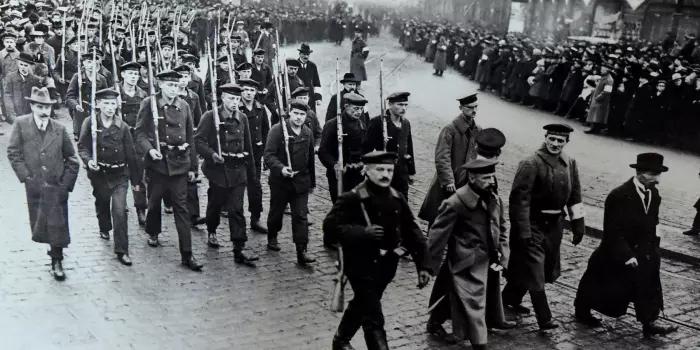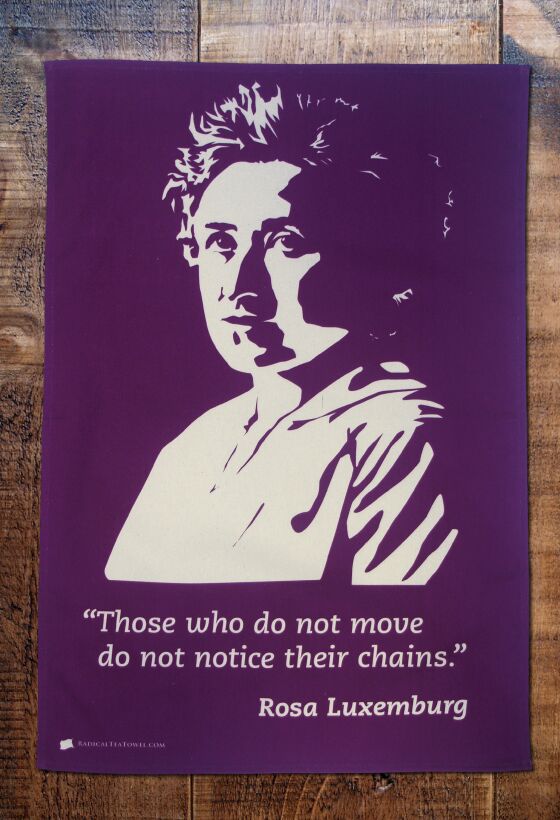Karl Artelt: Peace Through Mutiny
Posted by Pete on 31st Dec 2019
On this day in 1890, a working-class kid called Karl Artelt was born near Magdeburg, Germany. Thirty years later he led the naval mutiny which brought down Kaiser Wilhelm and ended the First World War.
On 24th October 1918 Admiral Franz von Hipper ordered the German navy out of its Baltic ports to take on the British in the North Sea.
The First World War was all but lost, but the commanders of the German fleet wanted one final showdown with the Royal Navy – one more pointless bloodbath.
But something wasn’t right.
Von Hipper, accustomed to obedience, had given his order but the fleet wasn’t moving.
What had gone wrong?
It started with a German socialist from Magdeburg called Karl Artelt.
Unease at Kiel
Discontent had been growing in the rank-and-file of the German fleet for years and Artelt, a shipyard worker at the navy base in Kiel, had been busy organising the sailors to stand up for themselves against their haughty officers and the imperial high command.
Back in June 1916, Artelt had led a strike against food shortages in the ‘Germania’ shipyard in Kiel (where he was an elected shop steward for the local metal workers trade union).
Then, in March 1917, Artelt was thrown in prison for six months after he led another strike against ration cuts involving thousands of shipyard workers.
But it was in October 1918 that the virtue of “try, try, and try again” would be proven in Karl Artelt’s life.

Some of the sailors of the Kiel Mutiny - click to read more Radical History on our blog!
Mutiny on the High Seas
Artelt wasn’t aboard the ships when the order to sail for the North Sea came down, but his earlier shows of defiance were surely on the minds of the German sailors who decided to disobey it.
Three crews refused to set sail while sailors aboard the Thüringen and Helgoland outright mutinied.
They were sick to death of having their lives treated as worthless by aristocrat admirals who wanted to play at war.
The commanders managed to apprehend the mutineers, but they also had to give up on their attempt to send the fleet out to battle; they could no longer be sure that their orders would be followed by these brave and war-weary sailors.
Things were at a stalemate with the mutineers in prison and the fleet immobilised.
But the sailors soon sensed their moment.
On 1st November 1918, thousands of sailors gathered together in Kiel demanding the release of their mutinous crewmates.
The next day, an even bigger, open air rally was held. The German navy was now in open rebellion.
And who was it at the centre of things? That engineer from Magdeburg, Karl Artelt.
Artelt helped the sailors link up to trade unionists and local socialists and, when troops were brought in from outside Kiel to suppress the growing mutiny, it was Artelt who personally convinced them to either return to their bases or even join the rebellion.
Artelt negotiated with the military governor on behalf of the aggrieved troops. He was often seen driving through Kiel to the talks waving a huge red flag out of the car window.
By 4th November, all of Kiel had been taken over by 40,000 revolutionary German soldiers and the town was being governed by a Soldiers’ Council. Wilhelmshaven, a base further down the coast, soon followed suit, and then so too did the rest of Germany.
The German Revolution – the revolution which would bring down the Kaiser and finish the Great War – had begun.

Karl Artelt and the virtue of disobedience
Karl Artelt spent the rest of his years fighting for the Left alongside heroes like Rosa Luxemburg and Karl Liebknecht, with varied success, in an ever-changing Germany.
But the revolt he was so important to in Kiel remains the centrepiece of a formidable history of mutinies during the First World War, distinguished only by its immense effectiveness.
The promise of every small act of wartime mutiny – whether British and German soldiers ignoring their officers to play football together at Christmas, or French troops refusing en masse to go over the top in 1917 – was that it might spiral and destroy the whole war machine, just as happened at Kiel in 1918.
As we get ready tonight to turn the page on the 2010s, let's spare a thought for Karl Artelt and his fellow rebels for the stand they made on the shores of the Baltic just over 101 years ago.
Our fabulous New Years sale is now on - click to view the great discounts !
